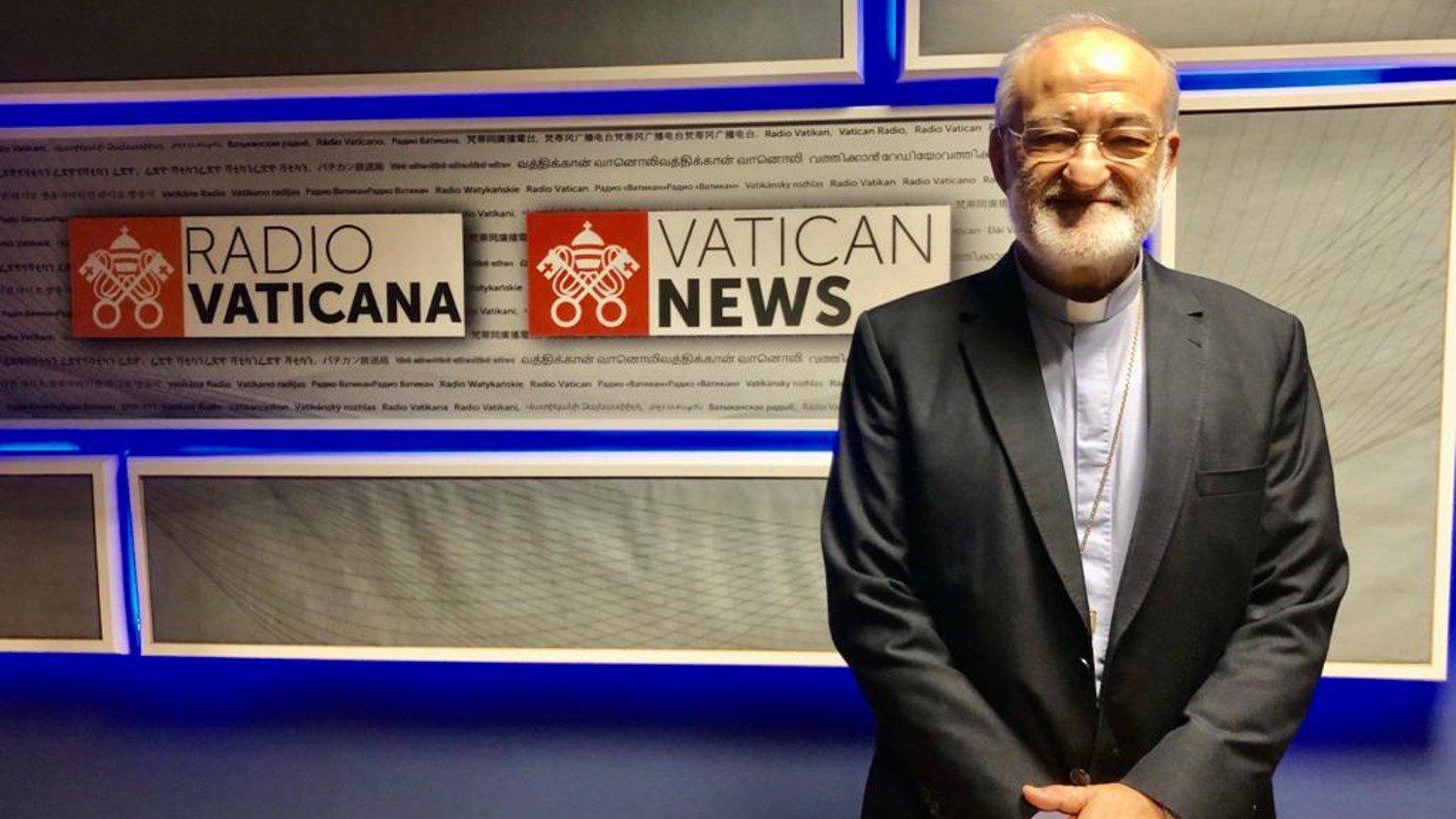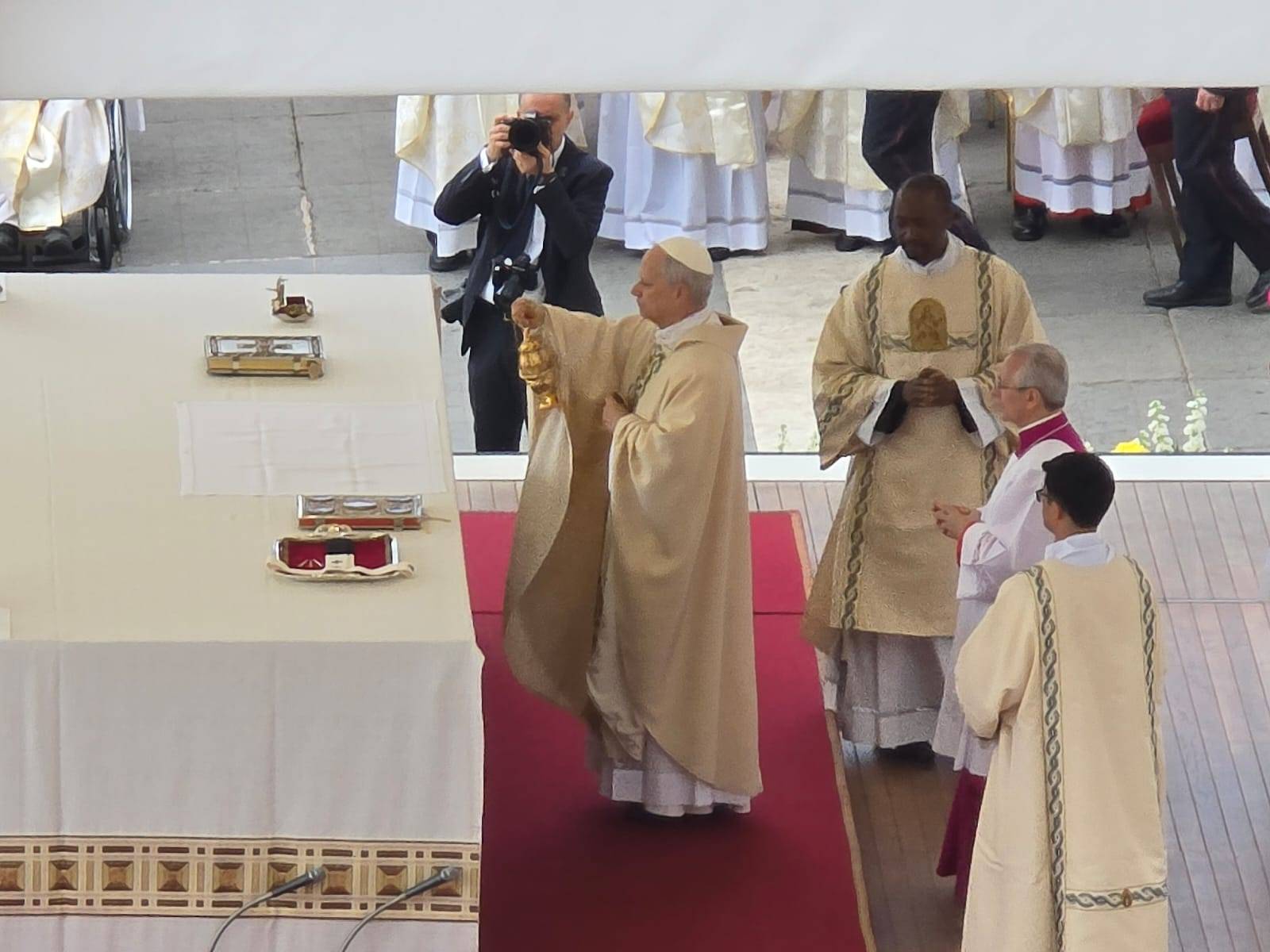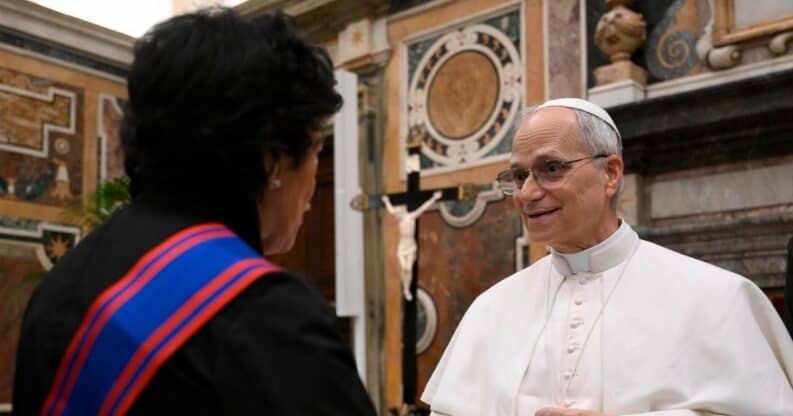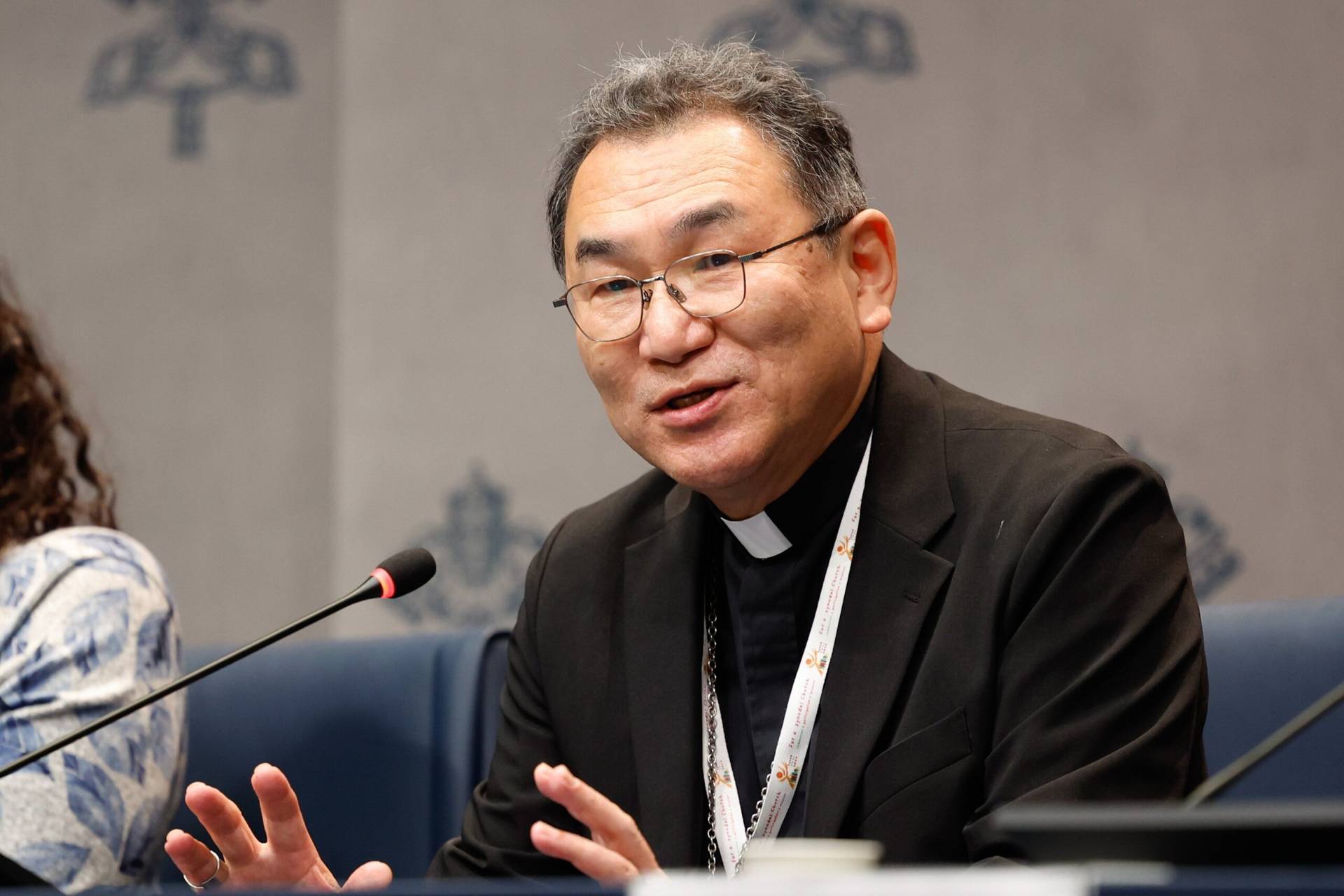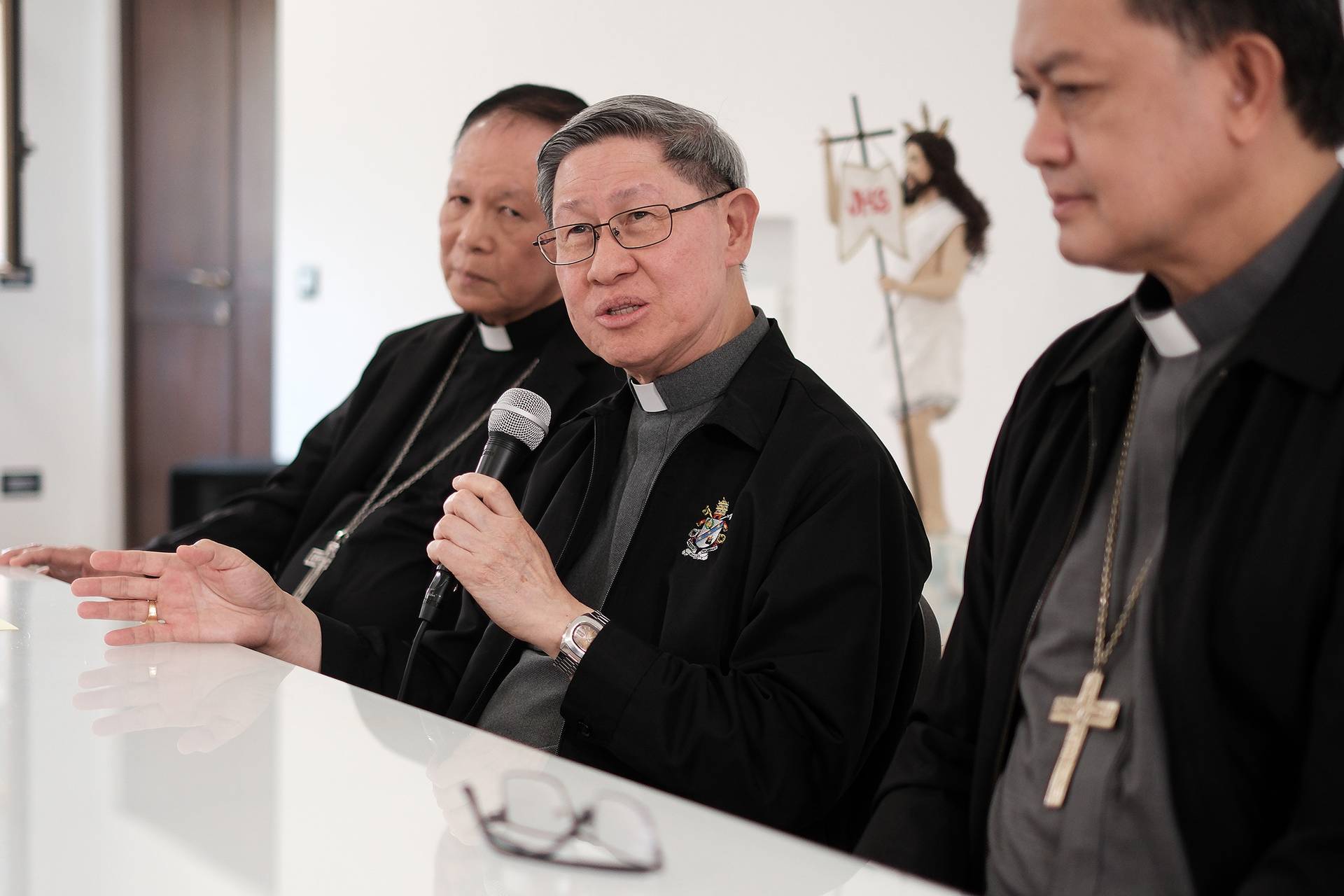Each day between now and the May 7 conclave to elect a successor to Pope Francis, John Allen is offering a profile of a different papabile, the Italian term for a man who could be pope. There’s no scientific way to identity these contenders; it’s mostly a matter of weighing reputations, positions held and influence wielded over the years. There’s also certainly no guarantee one of these candidates will emerge wearing white; as an old bit of Roman wisdom has it, “He who enters a conclave as a pope exits as a cardinal.” These are, however, the leading names drawing buzz in Rome right now, at least ensuring they will get a look. Knowing who these men are also suggests issues and qualities other cardinals see as desirable heading into the election.
ROME – Both geographically and historically, the region of Andalusia in Spain is a crossroads of humanity. Bordering both the Atlantic Ocean and the Mediterranean Sea, it’s physically part of Europe but for six centuries it was known as al-Andalus and formed a key outpost of the Islamic world.
It’s perhaps fitting that Andalusia therefore would give birth to a papal candidate who seems to unify three different worlds in his own biography: 72-year-old Cardinal Cristóbal López Romero, who currently serves as the Archbishop of Rabat in North Africa and who’s also spent considerable portions of his career in Paraguay and Bolivia.
It’s not, by the way, as if López is campaigning for the papacy; he recently quipped that if he sees any serious danger of that happening, he’ll start running from Rome and not stop until he hits Sicily. He also told a Spanish journalist that anyone desiring to be pope has problems, either of the head or the heart.
Whether he wants it or not, however, many people, including not a few of his fellow cardinals, can’t help looking at the bearded, jovial Salesian, who exudes an informal style coupled with a deep intelligence, and seeing a potential Successor of Peter.
López was just twelve years old when he decided to enter the Salesians of Don Bosco, the second-largest men’s religious order in the Catholic Church after the Jesuits, which is known for its doctrinal orthodoxy, its pastoral work with youth, and its commitment to schools. He professed his first vows at the age of 16 in 1968, during a period in Europe marked by student riots in which the idea of a religious vocation probably seemed a deeply counter-cultural act.
López was ordained to the priesthood in 1979 following studies at the diocesan seminary in Barcelona, and three years later he graduated with a degree in information science – with, let the record reflect, a specialization in journalism – from the Autonomous University of Barcelona.
Not long afterwards, López began the missionary journeys that would form the heart of his priesthood and his episcopal service.
In 1984 he departed for Paraguay, where he would remain for the next 20 years. Initially he was responsible for pastoral service with young people in the capital city of Asunción, eventually becoming the Salesian provincial director for work with youth. After two years as a parish priest in Asunción, López was then elected superior of the Salesians in Paraguay, which would not be the last time his leadership abilities came to the fore.
After finishing his term as superior and serving in a few other capacities for the Salesians in Paraguay, López’s life took a significant turn when he was asked to relocate to Morocco, where he ran a center of formation in the city of Kénitra from 2003 to 2011. That experience put him in the country during the initial stirrings of the 2011-2012 Moroccan protests, part of the broader Arab Spring, which eventually led to the King conceding a series of constitutional reforms allowing for democratic elections.
Unusually, López was asked to go back to Latin America in 2011 to take up the post of superior of the Salesian province in Bolivia. Usually leadership would be elected from the members of the order already in the country, but clearly there were challenges in Bolivia that the community judged an outsider, someone with deep experience and a reputation for good judgement, was needed to address.
After three years, López returned to Morocco to become superior of the Salesian community there, his third leadership position in the community. He held that post until 2017, when Pope Francis named him the Archbishop of Rabat, making him the leader of the small Catholic community – less than one percent of the national population of 31 million – in the overwhelmingly Muslim nation.
In the post, López became a major proponent and architect of interfaith dialogue, especially Christian/Muslim relations. In March 2019 he hosted Pope Francis on a two-day visit to celebrate the 800th anniversary of the historic encounter between St. Francis of Assisi and Sultan al-Malik al-Kamil during the Fifth Crusade. The pontiff was obviously appreciative, naming López a cardinal in a consistory he staged later that year in October.
During his term in Rabat, López has also emerged as an important voice on behalf of migrants and refugees who often set out from North Africa in search of a better life in Europe. During the course of a 2020 summit on the Mediterranean region in Bari, Italy, López insisted that immigration is “not a problem, but the consequence of many problems.”
“Poverty, wars, famines and climate change, an economic system which, as Pope Francis says, crushes entire populations: These are the problems that give rise to the migratory phenomenon,” he said.
López then offered a personal touch.
“I suffer a lot when, in Spain, some people, after having participated in the Eucharistic celebration, ask me, in a spiteful tone, not to send any more migrants from Morocco,” he said. “I ask myself: how is it possible to go to Mass and feel almost no compassion for the men, women and children who are suffering?”
López took part in Pope Francis’s two Synods of Bishops on Synodality, endorsing in general terms the class for a more dialogic and participatory Church, but he steered clear of taking positions on any of the controversial questions in those summits, from the ordination of women deacons to the blessing of persons involved in same-sex unions.
The case for López Romero?
To begin with, he has global appeal. Latin Americans tend to see him as one of their own, but he also has strong relationships with many African bishops, who, among other things, appreciate his pastoral care of migrants from their countries who arrive in Morocco trying to cross the Mediterranean into Europe.
The fact of being Salesian is reassuring to some voters, who see it as a sort of Good Housekeeping Seal of Approval that he won’t rock the boat too much. In that sense, a vote for López could be seen as a choice for the social and cultural portions of the Pope Francis agenda, but without the more doctrinally adventurous elements.
Further, at a time when many cardinals believe it’s important the next pope be a strong governor, especially in terms of Vatican administration, the varied experience López brings in leadership positions is seen as an asset.
Finally, López Romero is one of those rare figures who just seems to radiate contentment and serenity, a pastor with a keen sense of humor and also a deep spiritual streak. If the lead item on the job description of a pope is to the Church’s Missionary-in-Chief, then López might well strike many as an attractive option.
The case against?
The lack of a clear record on intra-ecclesial disputes may hurt López in some quarters. A few cardinal electors may feel they took a spin on a Latin American with a somewhat ambiguous platform twelve years ago, and they’re not really in the humor to do it again, even if the candidate was technically born in Spain.
In addition, López Romero’s résumé may come off to some electors as compelling and impressive, but perhaps a little too singular. The challenges of being the chief shepherd of Rabat, after all, no doubt are daunting, but how much real relationship do they bear to the ordinary circumstances of Catholic life in most of the rest of the world?
It may be a small point, but it’s also worth noting that it’s been almost 325 years since the Catholic Church was last led by a bearded pope – Innocent XII, who reigned from 1691 to 1700. On the other hand, Innocent was a reformer, fighting the practice of nepotism in Church offices, so perhaps López would bring the same spirit into the office.
In any event, his thick beard is all white – perhaps a nice bit of color coordination with the vestments he could be wearing in just a matter of days, should the choice fall upon the Man from Morocco.
